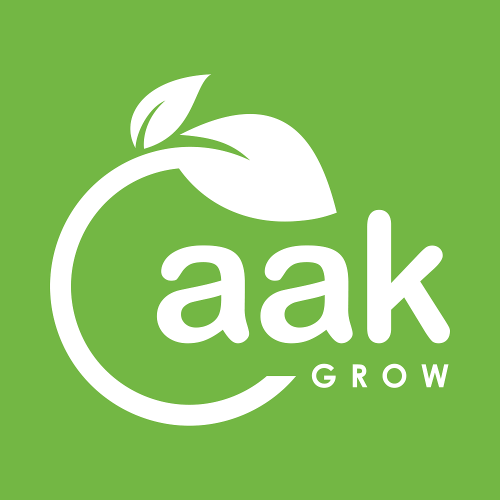ROAD MAP TO CONTAINER MANAGEMENT AND OBSOLETE STOCKS
AAK and its members subscribe to the international code of conduct on pesticide management. We therefore recognize our responsibility and role in securing the environmental fate of the pesticides we trade in. AAK has set up mechanisms to safeguard Empty Pesticide Containers (EPCs) as well as obsolete pesticides.
AFRICA STOCKPILES PROJECT/CLEAN FARM PROJECT
In 2008- 2014, Kenya participated in the Africa Stockpiles Project/ Clean farms in partnership with FAO.
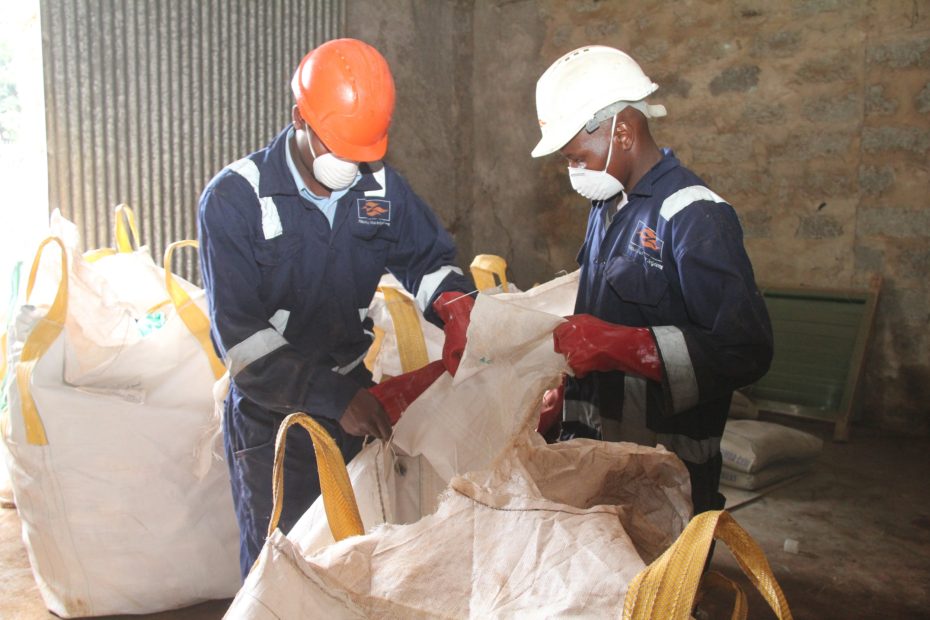
It involved taking inventory of obsolete pesticide stocks, safeguarding them and eventual disposal. Partners in the project were: AAK, Ministry of Agriculture, PCPB, Ministry of Environment and Natural Resources, FAO and CropLife International.
Some stocks dated back to independence and were held in farms and storage facilities across the country, they consisted of expired and banned products. The project culminated in the dispatch of 222 Metric Tons of obsolete stocks destined to UK for specialized disposal at a cost of USD 1,000,000. Increased demand for pesticides in agricultural production in the past decade, procurement policies and counterfeiters could have led to another stockpiling of obsolete stocks in the country.
The association takes proactive steps to prevent stockpiling of obsolete stocks by having regular inventory of possible obsolete stocks among the stakeholders, (both public and private).
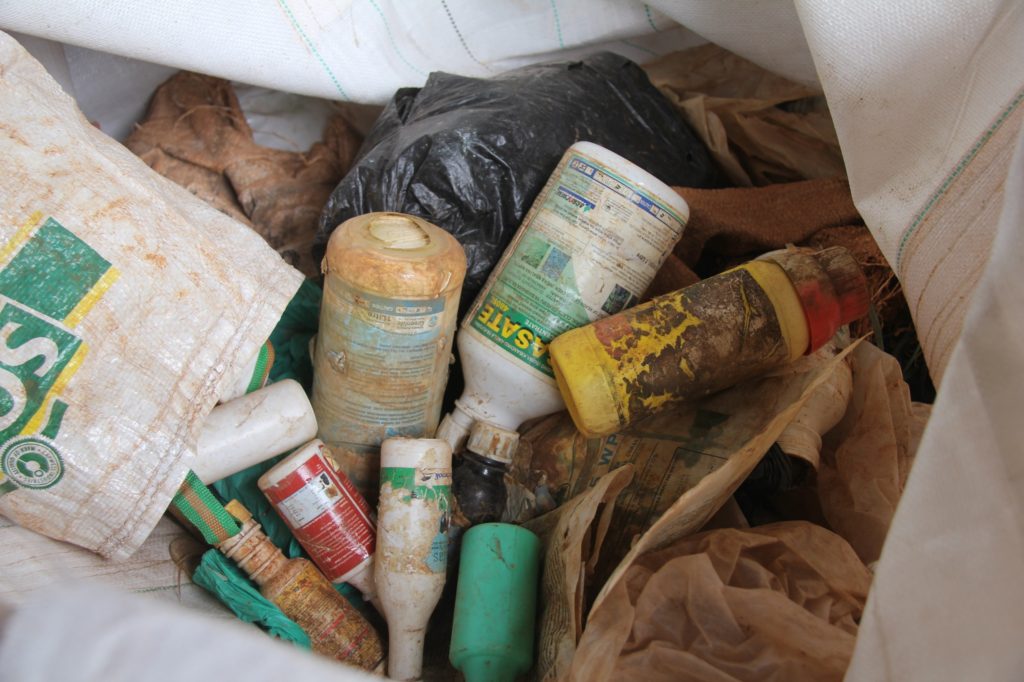
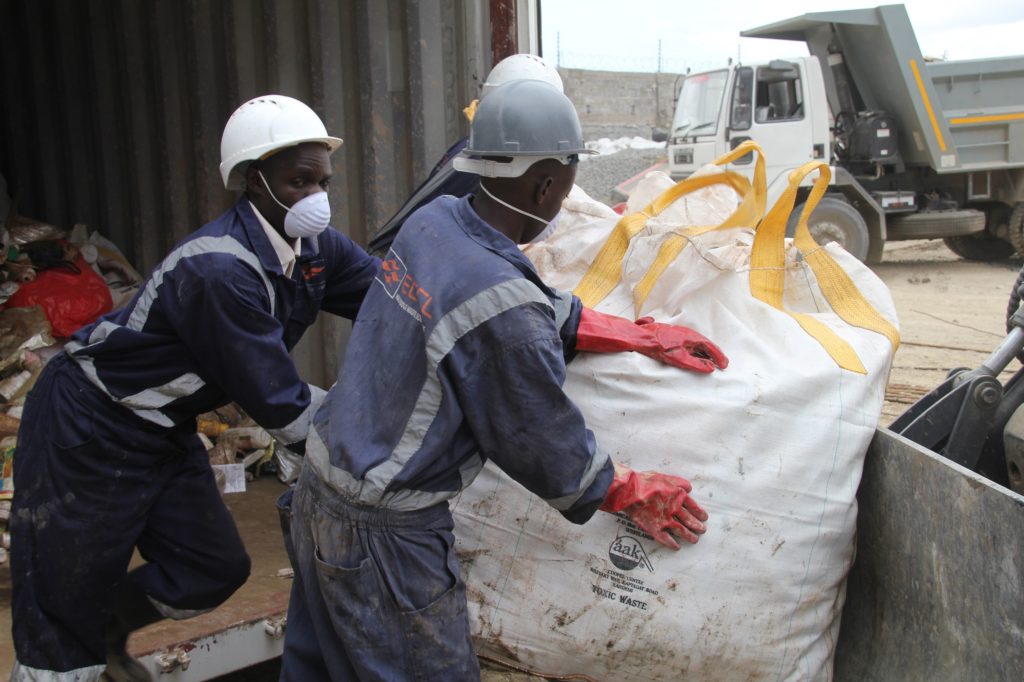
THE ASSOCIATION LAUNCHES SUSTAINABLE EMPTY PESTICIDE CONTAINER INITIATIVE (SEPCI) – 2015
The Agrochemicals Association of Kenya in collaboration with Pest Control Products Board (PCPB) and the Kenya Agricultural Productivity and Agribusiness Project (KAPAP) set up a Container Management Project dubbed “Sustainable Empty Pesticide Container Initiative (SEPCI)” to collect EPCs in selected counties for disposal in an environmentally friendly manner.
The project Counties were selected on the basis of pesticide use and concentration of small scale farmers. The identified Counties were:
- Makueni
- Nakuru
- Nyandarua
- Kakamega
- Taita Taveta
- Transnzoia
- Homabay
- Meru
- Nyeri
- Embu
The project built the capacity of both agrovets and societies in training and provision of “bins” for retrieval of EPCs. Through this project, AAK created awareness to farmers on the need to return the EPCs and dangers of poor disposal. Farmers were taken through Responsible Use (RU) training on Triple Rinsing of the Empty Pesticide Containers (EPC) during farmer field days to ensure that the farmers returned only triple rinsed containers to the collection centers. AAK also partnered with Environment Combustion Consultants Limited (ECCL) to collect and destroy the EPC as it looks for possibilities for recycling. The project collected EPC from farmers from 2 main areas:
(a). Through agrovets outlets where farmer returned the EPC during purchase of pesticides from the agrovets
(b). Through farmer societies and cooperatives where farmers in organized groups return the EPC to the society’s factory offices
During the period of operation, over 500 Tons of EPC were collected for disposal at the ECCL facility in Kajiado, Kenya. Collections are made at least twice a year, where EPC’s were aggregated in over 514 collection centers and disposed by incineration.
AAK has been continuously safeguarding and ensuring safe disposal of obsolete stocks the recent ones being >500 Tons in 2014/2015 and 26 Tons in 2020
EXTENDED PRODUCER RESPONSIBILITY – REGULATIONS, 2020
The spirit and intent of the Empty Pesticide Container Management scheme are in line with most of the recommendations in the draft EPR regulations 2020, which were given by the Ministry of Environment and Forestry in June, 2020. The regulations are meant to operationalize a section of the National Waste Management Bill, 2018 and this shall have an impact on operations of manufacturers, including agrochemical companies.
As per the guidelines, every producer is obliged to bear EPR obligation to reduce pollution and environmental impacts of the product that they introduce in the market by establishing post-consumer collection and take back schemes system. The execution of EPR obligations can either be through individual or collective schemes.
At its 62nd Annual General Meeting (AGM) 2021, the members ratified the formation of a Producer Responsibility Organization (PRO) for the industry. The objective of the PRO is to manage any waste that may arise from the industry operations and to comply with the NEMA regulations on Extended Producer Responsibility (EPR).
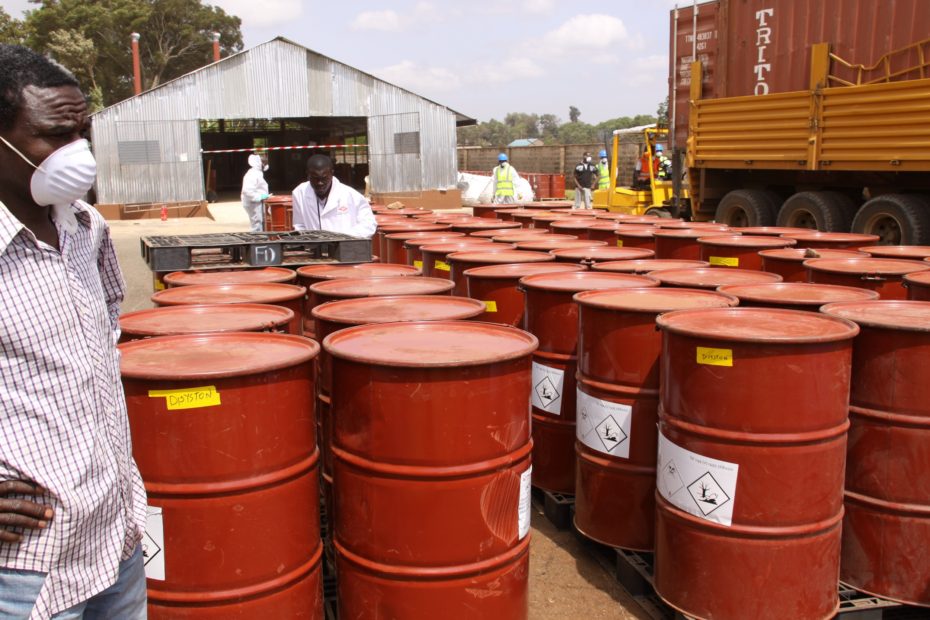
Responsibility of the PRO:
i. The PRO shall be responsible for executing EPR obligations on behalf of its members
ii. Organize and manage collection, sorting, material recovery, recycling, treatment and end of life management of its members’ products.
iii. Establish post-consumer collection and take back schemes system.
iv. Provide financial contributions to be used to accomplish the EPR obligations as set.
v. Be responsible for modulation of EPR fees according to established environmental criteria.
